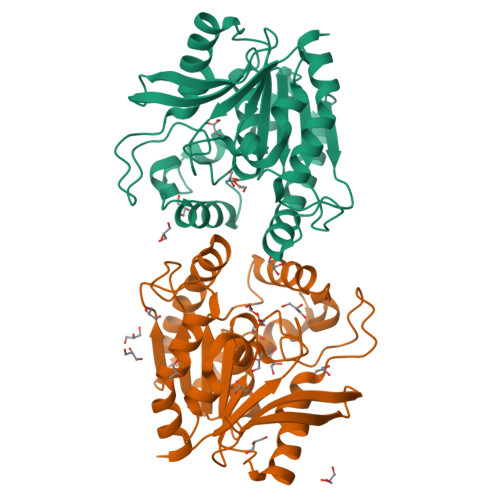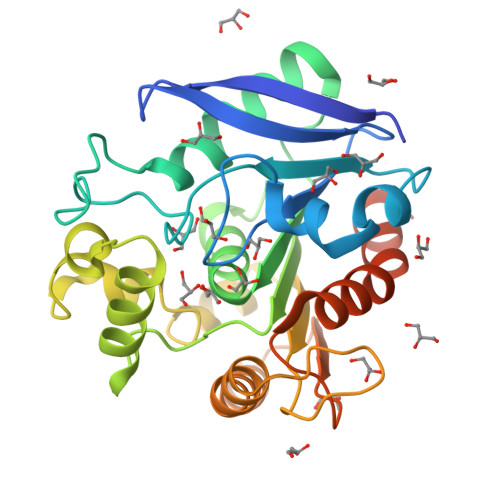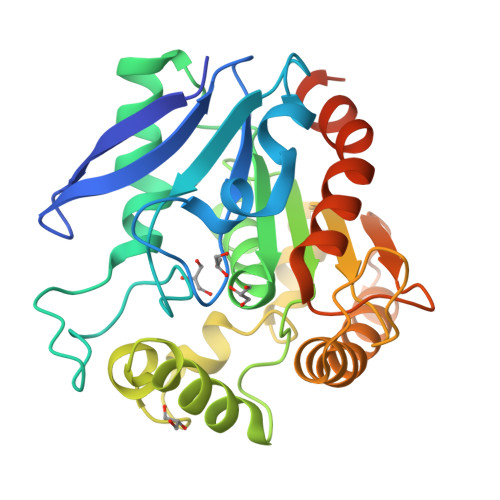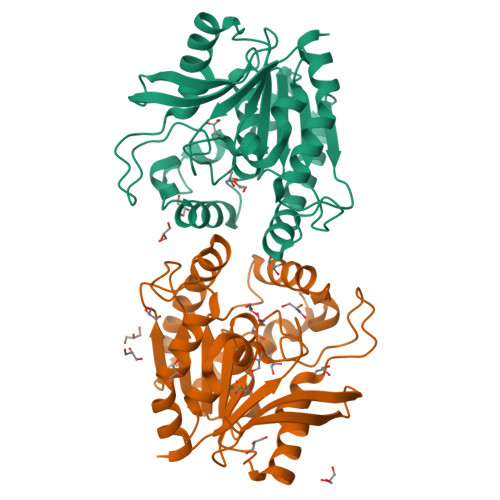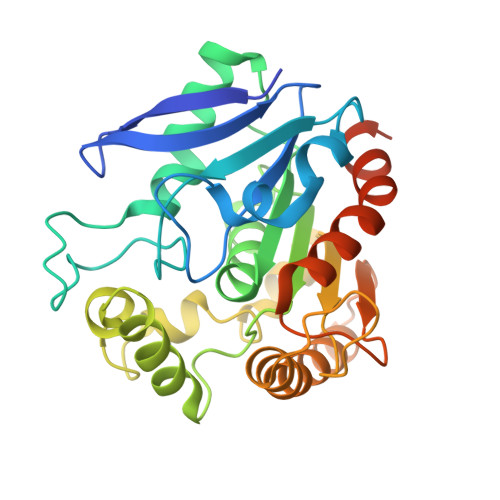Design, synthesis and biological evaluation of sugar-derived esters, alpha-ketoesters and alpha-ketoamides as inhibitors for Mycobacterium tuberculosis antigen 85C.
Sanki, A.K., Boucau, J., Umesiri, F.E., Ronning, D.R., Sucheck, S.J.(2009) Mol Biosyst 5: 945-956
- PubMed: 19668859
- DOI: https://doi.org/10.1039/b902284h
- Primary Citation of Related Structures:
3HRH - PubMed Abstract:
Peptide-based 1,2-dicarbonyl compounds have emerged as potent inhibitors for serine proteases. Herein, we have designed and synthesized d-arabinose and d-trehalose-based esters, alpha-ketoesters and alpha-ketoamides, and evaluated their inhibitory activity against Mycobacterium tuberculosis (Mtb) antigen 85C (ag85C), an acyltransferase in the serine hydrolase superfamily. In addition the compounds were evaluated for the ability to inhibit the growth of Mycobacterium smegmatis ATCC 14 468, a non-pathogenic surrogate for Mtb. Among the synthetic analogs evaluated only the methyl ester derived from d-arabinose was found to inhibit the acyltransferase activity of ag85C (IC(50) = 25 mM). Based on this weak inhibitory activity it was not surprising that none of the compounds inhibits the growth of M. smegmatis. In spite of the weak inhibitory activity of , X-ray crystallography on crystals of ag85C soaked with suggested the formation of a covalent ester adduct between and the Ser124 side chain hydroxyl moiety found within the catalytic site of ag85C; however, some of the active site electron density appears to result from bound glycerol. The lack of activity associated with the alpha-ketoester and alpha-ketoamide derivatives of d-trehalose may be the result of intramolecular cyclization of the alpha-keto moiety with the nearby C-4/4' hydroxyls leading to the formation of stable bicyclo-ester and amide derivatives.
Organizational Affiliation:
Department of Chemistry, The University of Toledo, OH 43606, USA.








